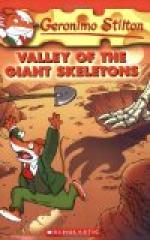Bryce looked at his watch. It was two o’clock; at two-fifteen Pennington’s locomotive would appear, to back in and couple to the long line of trucks. And the train was only half loaded.
“Where’s McTavish?” Bryce demanded of the donkey-driver.
The man mouthed his quid, spat copiously, wiped his mouth with the back of his hand, and pointed. “Up at his shanty,” he made answer, and grinned at Bryce knowingly.
Up through the camp’s single short street, flanked on each side with the woodsmen’s shanties, Bryce went. Dogs barked at him, for he was a stranger in his own camp; children, playing in the dust, gazed upon him owlishly. At the most pretentious shanty on the street Bryce turned in. He had never seen it before, but he knew it to be the woods-boss’s home, for unlike its neighbours the house was painted with the coarse red paint that is used on box-cars, while a fence, made of fancy pointed pickets painted white, inclosed a tiny garden in front of the house. As Bryce came through the gate, a young girl rose from where she knelt in a bed of freshly transplanted pansies.
Bryce lifted his hat. “Is Mr. McTavish at home?” he asked.
She nodded. “He cannot see anybody,” she hastened to add. “He’s sick.”
“I think he’ll see me. And I wonder if you’re Moira McTavish.”
“Yes, I’m Moira.”
“I’m Bryce Cardigan.”
A look of fright crept into the girl’s eyes. “Are you—Bryce Cardigan?” she faltered, and looked at him more closely. “Yes, you’re Mr. Bryce. You’ve changed—but then it’s been six years since we saw you last, Mr. Bryce.”
He came toward her with outstretched hand. “And you were a little girl when I saw you last. Now—you’re a woman.” She grasped his hand with the frank heartiness of a man. “I’m mighty glad to meet you again, Moira. I just guessed who you were, for of course I should never have recognized you. When I saw you last, you wore your hair in a braid down your back.”
“I’m twenty years old,” she informed him.
“Stand right where you are until I have looked at you,” he commanded, and backed off a few feet, the better to contemplate her.
He saw a girl slightly above medium height, tanned, robust, simply gowned in a gingham dress. Her hands were soiled from her recent labours in the pansy-bed, and her shoes were heavy and coarse; yet neither hands nor feet were large or ungraceful. Her head was well formed; her hair, jet black and of unusual lustre and abundance, was parted in the middle and held in an old-fashioned coil at the nape of a neck the beauty of which was revealed by the low cut of her simple frock. Moira was a decided brunette, with that wonderful quality of skin to be seen only among brunettes who have roses in their cheeks; her brow was broad and spiritual; in her eyes, large, black, and listrous, there was a brooding tenderness not untouched with sorrow— some such expression, indeed, as da Vinci put in the eyes of his Mona Lisa. Her nose was patrician, her face oval; her lips, full and red, were slightly parted in the adorable Cupid’s bow which is the inevitable heritage of a short upper lip; her teeth were white as Parian marble; and her full breast was rising and falling swiftly, as if she laboured under suppressed excitement.




